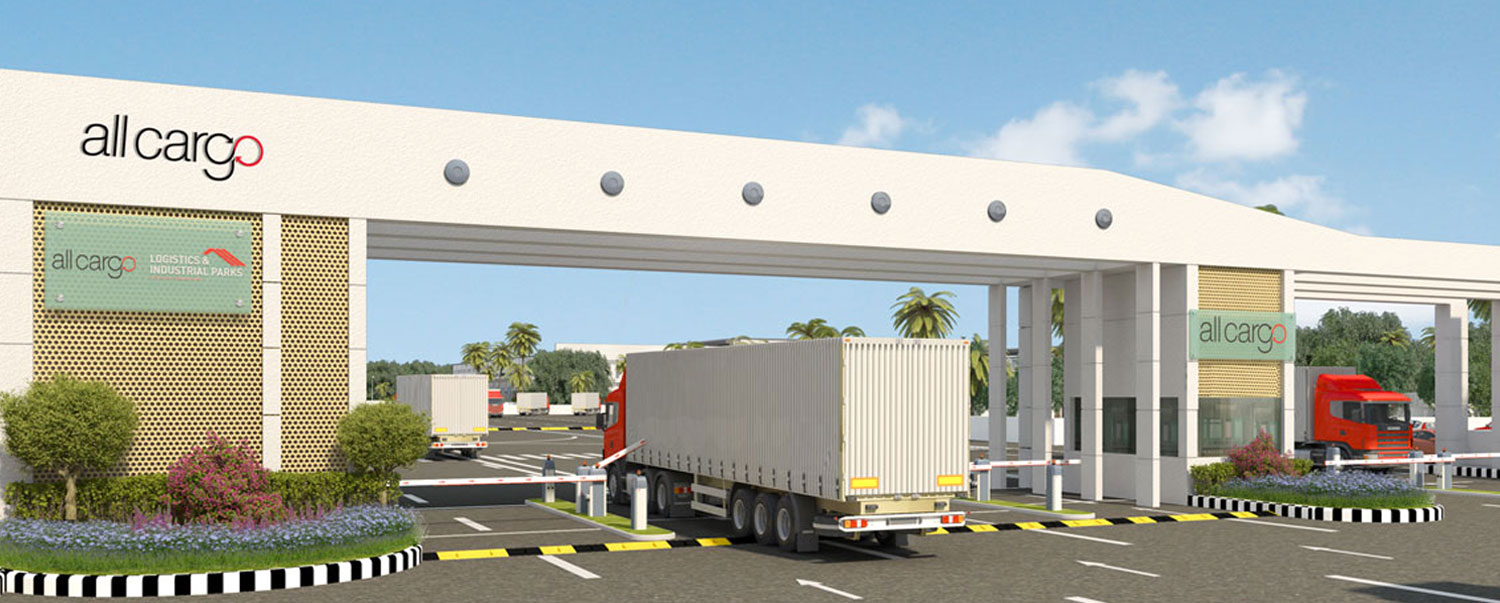Adding value to supply chain and logisticsAllcargo Logistics Industrial Parks’ integrated logistics solutions give competitive edge to customers, deliver better efficiencies
Allcargo Logistics, the established leader with global presence and a stronghold in the Inland Container Depot (ICD), container freight, Less-than Container Load (LCL) consolidation and contract logistics business, it is all set to create large-format, technology-enabled, integrated logistics parks across the country. Allcargo fully understands the unique dynamics of India’s connectivity and infrastructure, and by tapping into the strength of its diversified business, it is well-equipped to identify growth opportunities and strategic locations across the country that boast of commerce, convenience and cost efficiencies — all rolled into one. Spread over a sprawling 15 million square feet, these logistics parks will be built over the next 3-5 years and managed by Allcargo’s warehousing business venture, Allcargo Logistics Industrial Parks Pvt Ltd (ALIPPL).
Allcargo Logistics is India’s first and largest integrated logistics solutions provider in the private sector, and receives several awards each year in various areas of excellence. Over the last three decades, it has grown into a trusted logistics partner with a strong network of 300+ offices across 160+ countries, efficiently managed by over 4,500 employees.
Keeping with the demands of modern trade practices, Allcargo Logistics Industrial Parks are being developed to help clients overcome their warehousing challenges and minimise their logistics overheads. With warehousing emerging as a key variable and a differentiator for driving customer service and satisfaction, the Allcargo logistics parks will deliver cost, process and time efficiencies.
Deriving value
Fulfilment of industry-specific needs: Being a leader in the logistics space puts Allcargo in a position of advantage, allowing it to demonstrate its ability to provide built-to-suit (BTS), fully compliant logistics solutions, and add value to the supply chain and logistics of its clients. The design, facilities and integrated services that these parks offer is reflective of Allcargo’s customer-centricity and its deep understanding of the business requirements, rules, regulations and local bye-laws pertinent to various industries, and their logistical and warehousing needs. FMCG, e-commerce, retail, consumables, pharmaceuticals, automobile, chemical, and Third-Party Logistics (3PL) operators will find these parks most suited to their business requirements.
Realising cost efficiencies: With supply chains under pressure to yield cost savings, especially in the wake of GST, the dismantling of multiple check-posts, single window clearance and the simplification of procedures at toll plazas, and relying on professional logistics parks is the way forward. Rather than having several logistical facilities dispersed across regions in the pre-GST era, businesses will now find it prudent to consolidate their requirements in one or two large-format logistics parks. Truck utilisation has already shown signs of improvement, and with policies that will further boost the ease of doing business, one can expect clocking of up to 25 per cent more distance in a 24-hour workday, improving operational efficiency and reducing costs. The delivery time of 10-15 days from manufacturers to end customers has already gone down to 3-5 days and this is expected to further improve over time.
Strategic locations and right sizes: Customers can enjoy a vantage position as the Allcargo Logistics Industrial Parks are being constructed on land parcels based on strong growth characteristics, and their proximity to industrial bases, ports and consumption areas, helping them reach out to their end customers with ease, while bringing down transportation costs. These parks are in varying stages of completion across the country.
Grade ‘A’ facilities and infrastructure: All parameters pertaining to the warehousing facilities in Allcargo’s logistics parks will be Grade ‘A’ in quality, fully compliant with safety and other regulatory standards specific to industries. The parks will boast of green spaces, cafeterias, good quality roads, adequate parking and loading docks, and washrooms and resting areas for drivers. Moving to an integrated logistics park also holds scope for improving warehouse inventory management.
Realising cost efficiencies:
With supply chains under pressure to yield cost savings, especially in the wake of GST, the dismantling of multiple check-posts, single window clearance and the simplification of procedures at toll plazas, relying on professional logistics parks is the way forward. Rather than having several logistical facilities dispersed across regions in the pre-GST era, businesses would now find it prudent to consolidate their requirements in one or two large-format logistics parks. Truck utilisation has already shown signs of improvement, and with policies that will further boost the ease of doing business, one can expect clocking of up to 25 per cent more distance in a 24-hour workday, improving operational efficiency and reducing costs. The delivery time of 10-15 days from manufacturers to end customers has already gone down to 3-5 days, and this is expected to further improve over time.
Growth potential
The Indian consumer market is almost as big as China or America, but is supported by only 0.04 per cent of the logistics space in comparison. Currently, India has only 60-70 million square feet of Grade ‘A’ warehousing facility. While trucks in China cover an average of 500km a day, in India, they barely operate at 50 per cent of this benchmark. Nevertheless, with logistics now being recognised as an infrastructure sub-sector, the Indian industry can expect credit at competitive rates. This would favour the overall expansion of the pan-India warehousing capacity from the existing 670 million square feet to 920 million square feet over the next four years, with major players like Allcargo leading the way with its logistics parks.
Businesses that avail consolidated logistics services will reduce the need for having multiple service providers, leading to overall cost optimisation, including that pertaining to warehouse operations. For them, facilities like Allcargo Logistics Industrial Parks will maximise the potential for growth, improve customer experience and optimise costs.














